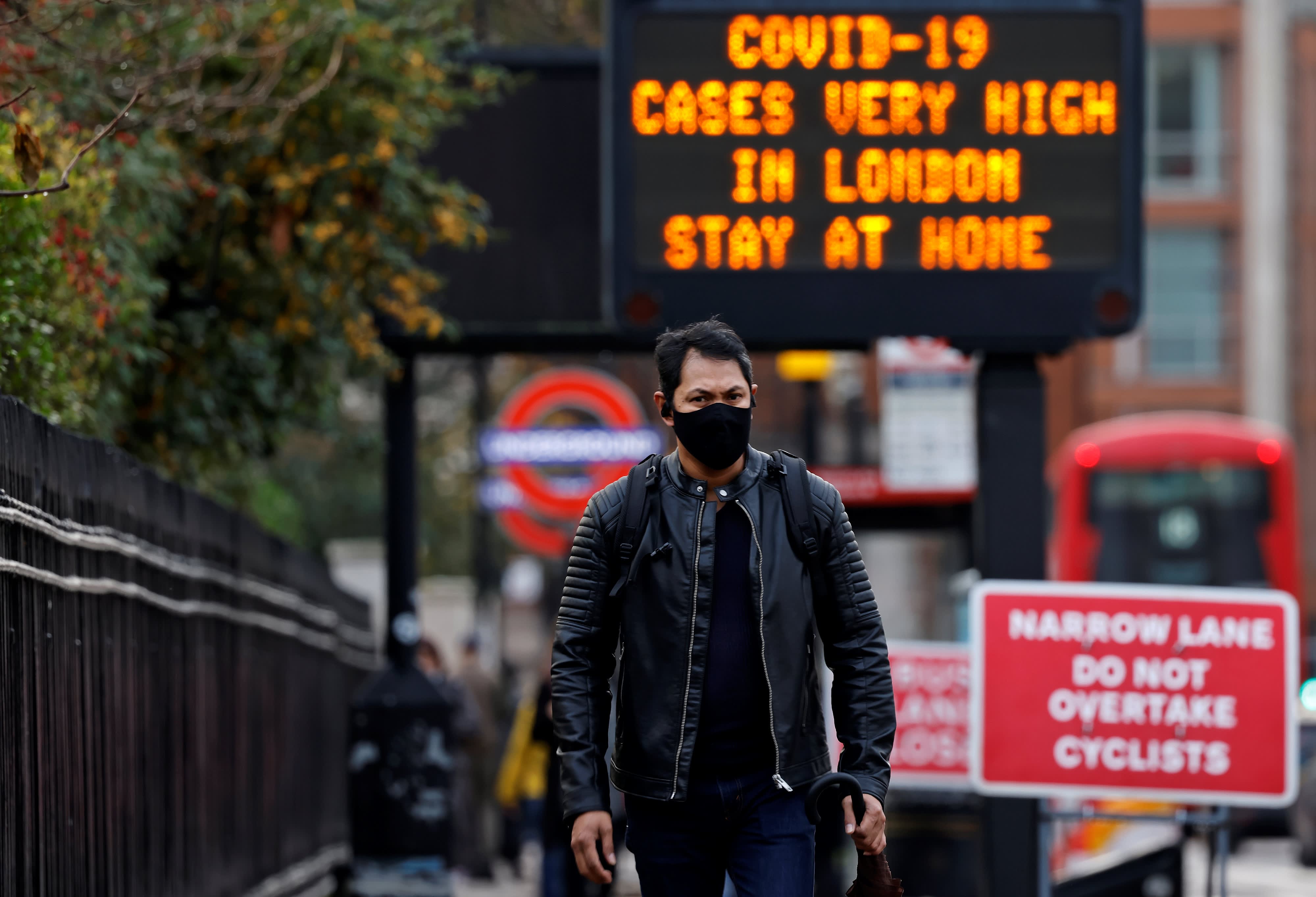A pedestrian wearing a face mask or covering due to the COVID-19 pandemic, walks in central London on December 23, 2020.
Tolga Akmen | AFP | Getty Images
WASHINGTON — A second new and potentially more infectious variant of the novel coronavirus identified in South Africa has emerged in the United Kingdom, the British government confirmed Wednesday.
“Thanks to the impressive genomic capability of the South Africans, we’ve detected two cases of another new variant of coronavirus here in the UK,” British Health Secretary Matt Hancock told reporters on Wednesday.
“This new variant is highly concerning, because it is yet more transmissible, and it appears to have mutated further than the new variant has been discovered in the UK,” he said.
Last week, South Africa announced the discovery of a new genetic mutation of the disease. On the heels of its identification, countries around the globe began closing their borders to South Africa.
The latest revelation comes as nations pulled their drawbridges up after scientists in the United Kingdom detected a new variant of the virus. While much is still unknown about the new strain, it is believed to have mutated as early as September.
The discovery sparked a steady drumbeat of border closures in neighboring European countries like Ireland, Germany, Belgium and France as well as countries outside of the continent.
Britain also imposed strict measures to curb the spread of the mutated strain of the virus which is believed to be up to 70% more transmissible.
According to the World Health Organization, the new variant has so far been identified in Denmark, the Netherlands, Northern Ireland and Australia.
The Centers for Disease Control and Prevention warned Tuesday that the new coronavirus strain that was first detected in Britain could be circulating in the U.S. without notice. President Donald Trump’s coronavirus vaccine czar Dr. Moncef Slaoui said Monday that the Pfizer and Moderna Covid-19 shots should be effective against the new strain.
The new variants, from South Africa and Britain, have not yet been identified in the United States.
